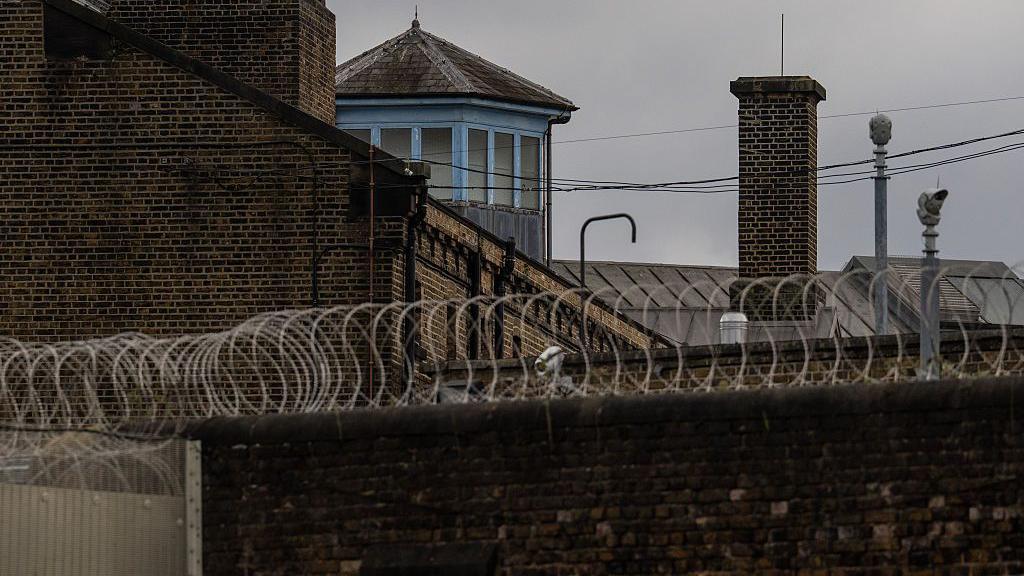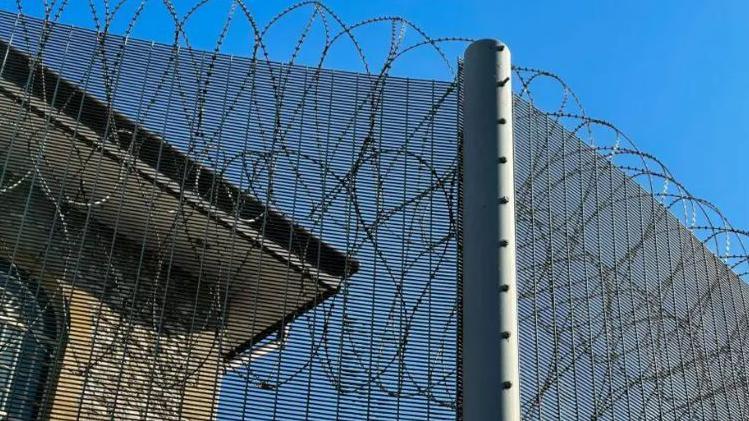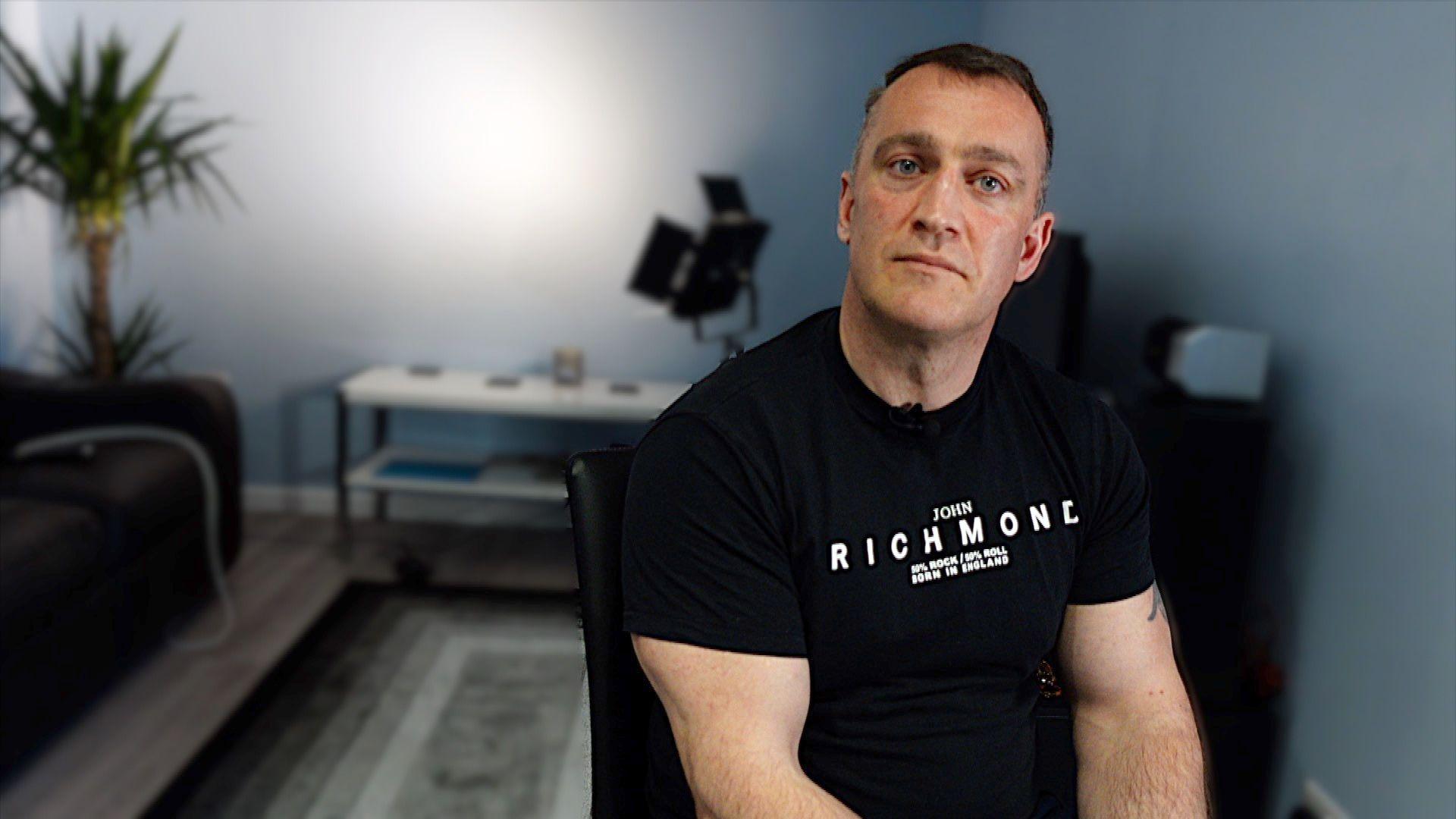Rise in violence after prison legal high ban - study

University of Sussex researchers say since the banning of "legal highs" in prisons in 2016, there has been a spike in violence inside prisons
- Published
The banning of "legal highs" has led to an increase in incidents of violence, self-harm and suicide in prisons, according to a study by the University of Sussex.
Researchers say despite being made illegal in prisons in 2016, new psychoactive substances (NPS) remain available behind bars, including Spice, a synthetic drug linked to unpredictable behaviour.
The report says the ban has resulted in NPS price increases, which has led to "power struggles" and violence among dealers and addicts.
A Ministry of Justice (MoJ) spokesperson said: "The Government inherited a crisis facing our prisons, with levels of violence, assaults on staff and self-harm far too high."
They added the government was taking action to "end this chaos".
"This is by building 14,000 prison places and reforming our jails so they create better citizens, not better criminals," they said.
"This is on top of investing £40m this year to bolster security and stop contraband entering prisons."
The university analysed MoJ records from all 96 prisons in England and Wales, before and after the ban, and found a 38% rise in serious assaults.
Researchers said prison records revealed a 15% increase in self-directed violence in the weeks after the legislation, which amounts to more than 940 additional incidents of self-harm and 10 cases of suicides.
'Power struggles can break out'
Researchers believe higher prices made NPS drug habits unsustainable for some people with severe addiction.
The researchers cite a study by Manchester Metropolitan University showing before the 2016 ban on NPS, an ounce of synthetic cannabis could be bought for £3 per gram.
After the ban, it was resold in prisons for about £100 per gram.
The author of the report, associate professor Dr Rocco d'Este, said: "With more money to be made from dealing and fewer inmates able to feed their habit, power struggles can break out among dealers and increasingly desperate addicts."
Researchers urge policymakers to consider the links between withdrawal symptoms and violence before implementing new drug policies that would affect prisoners.
Dr d'Este said: "Addicts withdrawing from synthetic cannabis can experience acute psychosis, hallucinations and paranoid delusions.
"Cutting drug supply in prisons where NPS addiction is rife without offering effective treatment adds another element of danger to understaffed institutions.
"Continuing to ignore the addiction and violence endemic to our prisons will lead to more crime on our streets, and more taxpayer money going on prison sentences in future."
'Drug misuse among prisoners much higher'
Mike Trace, chief executive of Forward Trust, which is a social justice charity, said the trust did not believe the 2016 legislation caused the growth in NPS use in prison.
He said it was down to growing profit margins and lower risk of detection that dealers realised they could achieve if they moved to Spice.
"The number of prisoners is growing and exceeding safe capacity levels, and drug misuse among prisoners is much higher in comparison to the general population," he added.
The charity has been running prison-based drug/alcohol abstinence programmes, for more than 30 years.
Mr Trace, who worked under former prime minister Tony Blair, helped create the first national prison drug strategy.
"Drug treatment is evidenced to have a significant impact on reducing reoffending," he added.
"The rehabilitation work we undertake in prisons is based on our proven model that helps inmates reduce demand for drugs in prison, helping them overcome addiction and avoid re-offending."
Mr Trace said the programme involved designating specific wings in a prison as locations for people who wanted to avoid drug dealing and use.
Follow BBC Sussex on Facebook, external, on X, external, and on Instagram, external. Send your story ideas to southeasttoday@bbc.co.uk, external or WhatsApp us on 08081 002250.
Related topics
- Published23 September 2024

- Published11 June
